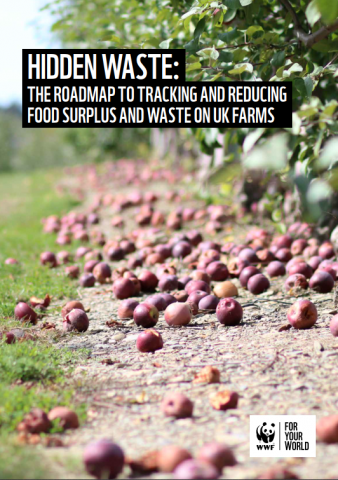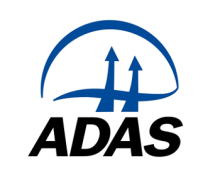Executive Summary:
In the recently released Hidden Waste,i a report by WWF-UK and Tesco, it was revealed that an estimated 3.3 million tonnes of food may be lost and wasted on farms in the UK each year. This suggests food waste at farm stage represents over 25% of food loss and waste (FLW) in the UK. This has a huge environmental impact, with food waste on farms based in the UK contributing 6 million tonnes of CO2 eq, equivalent to approximately 10% of UK agricultural GHG emissions.ii This waste also has significant financial implications for farmers already facing rising input costs, with UK onfarm food waste estimated to be worth £1.8 billion.iii Despite this, work on food waste in this stage of the supply chain is limited. In order to drive a reduction in food surplus and waste on farm, a pivotal first step is to increase the number of farmers measuring and reporting food surplus and waste. When utilising measurement methods waste is often higher than anticipated by farmers, and drivers and hotspots can be accurately identified, supporting actions to reduce them and so driving an increase in farm profitability by an average of 20%. However, despite the potential environmental and financial benefits, there is currently low uptake of food surplus and waste measurement on UK farms, with little having been done to engage or support farmers in an area that is integral to the sustainable agriculture agenda. As such, this Roadmap focuses largely on increasing the uptake of measurement of food surplus and waste on UK farms, enabling farmers to act on their own farms and with the long-term objective of utilising the data collected in this to drive meaningful changes to the post farm-gate drivers of food surplus and waste, and food system practices and policy that perpetuate waste. Collecting such data is imperative to provide sufficient evidence to drive changes at this scale. Farmers are at the very heart of our food system and - as custodians of the land - are also a linchpin in the protection of UK nature. However, farmers alone cannot be held responsible for the sustainability of our food production -they are part of a food system with many actors, and driving the transformation we need, including tackling on farm food waste, must be a collaborative effort across the sector including retailers, and supported by government. In 2021, WWF-UK completed a series of farmer dialogues and analyses to better understand the barriers farmers face to measuring and reporting food surplus and waste. Four key themes were identified, with barriers relating to: perceptions around food waste; labour; finances and processes (both in internal and external to the farm). This project combines the understanding of these barriers, with engagement from actors across the UK food system to co-create scalable support and solutions to the barriers. These solutions form a roadmap for increasing measurement and reporting of food surplus and waste on UK farms, to be delivered by the types of food system actors who were engaged in its development. This Roadmap complements Courtauld 2030, the IGDWRAP Food Waste Reduction Roadmap, and the Champions 12.3 10×20×30 initiative by providing guidance for food system actors to engage with this area of food waste and support farmers in taking positive actions towards reducing this waste. This takes place over five stages:
- Incentivise - In order to incentivise engagement, we call for the provision of evidence to farmers highlighting the impacts of food waste and the benefits of measurement (environmentally and financially) and to promote a better understanding of the measurement processes to reduce any concerns over time and financial burdens.
- Facilitate – The second stage focuses on providing farmers with the tools and systems necessary to facilitate them to measure and report food surplus and waste easily, efficiently and in a consistent manner to enable consolidation of the data at a sectoral and national level.
- Support – Stage 3 calls for actors to provide support for the on-farm processes required for measuring and reporting, such as initial training on measurement sampling methods and integrating measurement into existing farm processes.
- Enable change – Building on stage 1, stage 4 provides additional incentive in the form of actions that provide farmers with a way to maintain long term, beneficial change and waste reduction from the act of measuring and reporting surplus and waste. This includes reviewing the data to identify policy and practice shifts to reduce surplus and waste at farm stage and increasing access to secondary markets.
- Drive change – The final stage of the Roadmap takes the assumption that the previous stages have all been adequately met and farmers have been provided with the level of support and incentive needed to bolster voluntary measurement. Subsequently the actions in stage 5 focus on driving action beyond this and integrating measurement into policy.




